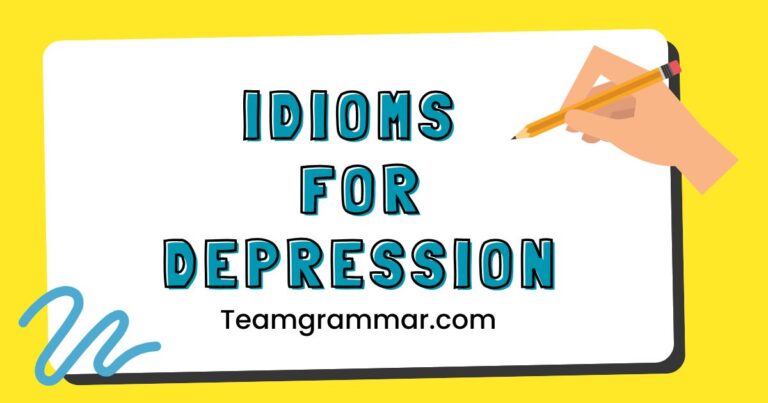37 Travel Idioms: Mastering English Expressions on the Go
Traveling is an enriching experience, and understanding idioms related to travel can significantly enhance your communication skills while abroad. Idioms are colorful expressions that add depth and nuance to the English language, but they can be tricky for non-native speakers.
This article provides a comprehensive guide to travel-related idioms, offering definitions, examples, and practice exercises to help you confidently use them in conversations and writing. Whether you’re a student, a tourist, or a language enthusiast, this resource will equip you with the knowledge to navigate the world of travel idioms like a pro.
Table of Contents
- Definition of Travel Idioms
- Structural Breakdown of Travel Idioms
- Types and Categories of Travel Idioms
- Examples of Travel Idioms
- Usage Rules for Travel Idioms
- Common Mistakes with Travel Idioms
- Practice Exercises
- Advanced Topics in Travel Idioms
- Frequently Asked Questions (FAQ)
- Conclusion
Definition of Travel Idioms
Travel idioms are expressions that use figurative language to describe aspects of traveling, such as planning, transportation, experiences, and challenges. These idioms often convey meanings that are not immediately obvious from the literal definitions of the words used.
Understanding travel idioms is crucial for comprehending native English speakers in travel-related contexts and for expressing yourself more naturally and effectively.
Classification: Travel idioms fall under the broader category of idioms, which are fixed expressions with non-literal meanings. They are typically categorized thematically, based on the aspect of travel they relate to.
Function: Travel idioms add color and expressiveness to language, allowing speakers to convey complex ideas and emotions concisely. They also help to establish a sense of connection and shared understanding between speakers.
Contexts: Travel idioms are commonly used in everyday conversations, travel blogs, news articles, and other forms of media that discuss travel-related topics. They are particularly prevalent in informal settings but can also appear in more formal contexts, depending on the audience and purpose.
Structural Breakdown of Travel Idioms
Travel idioms, like all idioms, are fixed expressions, meaning their structure and wording cannot be altered without changing or losing their intended meaning. They often consist of a combination of nouns, verbs, adjectives, and prepositions, arranged in a specific order.
Understanding the structure of idioms can help you recognize and remember them more easily.
Common Patterns: Many travel idioms follow common patterns, such as:
- Verb + Preposition: Hit the road (to begin a journey)
- Noun + Verb: Travel bug (a strong desire to travel)
- Adjective + Noun: Red-eye flight (an overnight flight)
Figurative Language: Travel idioms often employ figurative language, such as metaphors, similes, and personification, to create vivid and memorable images. For example, “off the beaten path” uses a metaphor to describe a less-traveled route or destination.
Types and Categories of Travel Idioms
Travel idioms can be categorized based on the specific aspect of travel they relate to. Here are some common categories:
Planning and Preparation
These idioms relate to the process of planning a trip, making reservations, and packing.
The Journey Itself
These idioms describe the act of traveling, including transportation, navigation, and dealing with delays.
Unexpected Events
These idioms refer to unforeseen circumstances that can occur during a trip, such as lost luggage, canceled flights, or getting sick.
Travel Experiences
These idioms describe the overall experience of traveling, including sightseeing, meeting new people, and trying new things.
Examples of Travel Idioms
The following sections provide examples of travel idioms, organized by category, along with their meanings and example sentences.
Planning and Preparation
These idioms are useful when discussing the initial stages of a trip.
The table below provides examples of idioms related to planning and preparation for travel. These idioms are essential for discussing the initial stages of a trip, including making reservations, packing, and organizing travel documents.
| Idiom | Meaning | Example Sentence |
|---|---|---|
| Hit the books | To study or research something thoroughly | Before our trip to Italy, we need to hit the books and learn some basic Italian phrases. |
| Pack your bags | To prepare for a journey | We’re packing our bags for a week-long vacation in Hawaii. |
| Book a flight | To reserve a seat on an airplane | I need to book a flight to London for the conference next month. |
| Make reservations | To arrange accommodations or activities in advance | We should make reservations at that fancy restaurant before we arrive. |
| Get your ducks in a row | To organize and prepare everything in advance | Before leaving for our road trip, we need to get our ducks in a row and make sure we have all the necessary documents. |
| Travel light | To pack only essential items | I always try to travel light when I go on business trips. |
| Map out | To plan in detail | Let’s map out our itinerary before we start our tour of Europe. |
| Touch base | To make contact with someone | Let’s touch base next week to finalize our travel plans. |
| Set aside | To save something for a particular purpose | We need to set aside some money for our vacation. |
| Ahead of time | Early; in advance | It’s best to book your train tickets ahead of time, especially during peak season. |
| Get in touch | To contact | Get in touch with the hotel to confirm your booking. |
| Look into | To investigate or research | I need to look into visa requirements before traveling. |
| Run through | To review quickly | Let’s run through the itinerary one last time. |
| Sort out | To organize or resolve | We need to sort out our travel insurance before we leave. |
| Think through | To consider carefully | We should think through all the possible scenarios before embarking on the journey. |
| Pick out | To choose carefully | She spent hours picking out the perfect outfits for her trip. |
| Draw up | To create or prepare | Let’s draw up a list of things to see on our vacation. |
| Pile up | To accumulate | Work tends to pile up before I go on vacation. |
| Pin down | To determine precisely | We need to pin down the exact dates for our trip. |
| Iron out | To resolve | We need to iron out all the details before confirming the booking. |
| Read up on | To study or research | I need to read up on the local customs before traveling to Japan. |
| Round up | To gather | Let’s round up all the travel documents before heading to the airport. |
| Size up | To evaluate | We need to size up our budget before planning our activities. |
| Tee up | To prepare or arrange | I’ll tee up a rental car for our arrival. |
The Journey Itself
These idioms are used to describe the actual process of traveling.
The table below provides examples of idioms related to the journey itself. These idioms are perfect for describing the actual process of traveling, including different modes of transportation, navigating unfamiliar places, and dealing with travel-related challenges.
| Idiom | Meaning | Example Sentence |
|---|---|---|
| Hit the road | To begin a journey | We’re going to hit the road early tomorrow morning to avoid traffic. |
| Smooth sailing | An easy and trouble-free journey | After a few initial delays, the rest of the trip was smooth sailing. |
| Off the beaten path | A place that is not well-known or frequently visited | We wanted to explore some towns off the beaten path during our road trip. |
| Bumpy ride | A difficult or unpleasant experience | The flight was a bumpy ride due to turbulence. |
| Red-eye flight | An overnight flight | I took a red-eye flight from Los Angeles to New York. |
| Travel bug | A strong desire to travel | Ever since my first trip abroad, I’ve had the travel bug. |
| Wing it | To improvise or do something without planning | We didn’t have a set itinerary, so we just decided to wing it. |
| Live out of a suitcase | To travel frequently and stay in many different places | As a consultant, he lives out of a suitcase, traveling to different cities every week. |
| Get around | To travel to different places | It’s easy to get around the city using public transportation. |
| Make good time | To travel without delays | We made good time on our drive to the coast. |
| At the crack of dawn | Very early in the morning | We had to wake up at the crack of dawn to catch our flight. |
| Burn rubber | To accelerate quickly | They burned rubber as they sped away from the airport. |
| Catch a flight | To board a plane | We need to leave soon if we want to catch our flight. |
| Chart a course | To plan a route | We need to chart a course before setting sail. |
| Clock up miles | To travel a long distance | They clocked up miles on their cross-country road trip. |
| Come across | To find unexpectedly | We came across a beautiful beach during our hike. |
| Get from A to B | To travel from one place to another | The subway is the quickest way to get from A to B in this city. |
| Get one’s bearings | To become familiar with a place | It took us a while to get our bearings in the new city. |
| Go the extra mile | To make an extra effort | The tour guide really went the extra mile to make our trip memorable. |
| Keep on track | To stay on schedule | We need to keep on track if we want to see everything on our list. |
| Land on one’s feet | To recover quickly from a difficult situation | Even though we missed our connecting flight, we managed to land on our feet. |
| Lose one’s way | To get lost | We lost our way while hiking in the mountains. |
| Miss the boat | To miss an opportunity | If you don’t book your tickets now, you might miss the boat. |
| On the go | Busy and traveling | She’s always on the go, traveling for work. |
Unexpected Events
These idioms are useful when discussing unforeseen circumstances that happen during travel.
The table below provides idioms for describing unexpected events during travel. These idioms help express frustrations, surprises, and challenges that can arise, such as lost luggage, canceled flights, or getting sick on a trip.
| Idiom | Meaning | Example Sentence |
|---|---|---|
| Miss the boat | To miss an opportunity | We missed the boat on getting cheap tickets because we waited too long to book. |
| Run into | To encounter unexpectedly | We ran into some bad weather during our camping trip. |
| Travel woes | Problems or difficulties encountered while traveling | We experienced several travel woes, including a delayed flight and lost luggage. |
| Get sidetracked | To be diverted from your original plan | We got sidetracked by a charming little town and ended up staying there longer than expected. |
| In the same boat | In the same difficult situation | All the passengers were in the same boat when the flight was canceled due to the storm. |
| Go south | To deteriorate or go wrong | Our vacation plans went south when the hotel canceled our reservation. |
| Weather the storm | To survive a difficult situation | We managed to weather the storm of flight delays and finally arrived at our destination. |
| Bite the bullet | To face a difficult situation with courage | We had to bite the bullet and pay extra for a new flight after missing our connection. |
| Call it a day | To stop working on something | After hours of dealing with travel problems, we decided to call it a day and try again tomorrow. |
| Get stuck | To be unable to move or progress | We got stuck in traffic for hours on our way to the airport. |
| Back to square one | Back to the beginning | When our flight was cancelled, it was back to square one in terms of planning. |
| Come undone | To fail or collapse | Our travel plans came undone when we realized our passports had expired. |
| Fall through | To fail to happen | Our hotel reservation fell through at the last minute. |
| Get derailed | To be diverted from the original plan | Our sightseeing trip got derailed when it started pouring rain. |
| Go pear-shaped | To go wrong | Everything went pear-shaped when we missed our connecting flight. |
| Hit a snag | To encounter an unexpected problem | We hit a snag with our visa application. |
| Lose out | To fail to gain something | We lost out on the opportunity to visit the museum because it was closed. |
| Run aground | To encounter unexpected difficulties | Our travel plans ran aground when we lost our passports. |
| Slip up | To make a mistake | I slipped up and booked the wrong dates for our hotel. |
| Take a turn for the worse | To become worse | The weather took a turn for the worse, forcing us to cancel our outdoor activities. |
| Up the creek without a paddle | In a difficult situation without help | We were up the creek without a paddle when our rental car broke down in the middle of nowhere. |
| When it rains, it pours | Problems tend to happen all at once | First, we missed our flight, then our luggage got lost – when it rains, it pours! |
Travel Experiences
These idioms are used to describe the overall experience of traveling.
The table below presents idioms related to travel experiences. These idioms help describe the overall experience of traveling, including sightseeing, cultural immersion, meeting new people, and the emotional impact of exploring new places.
| Idiom | Meaning | Example Sentence |
|---|---|---|
| See the sights | To visit popular attractions | We spent the day seeing the sights in Paris. |
| Soak up the atmosphere | To immerse oneself in the environment | We enjoyed soaking up the atmosphere of the local market. |
| Get a taste of | To experience something briefly | We only had a few days in Rome, but we got a taste of Italian culture. |
| Broaden your horizons | To expand your knowledge and experiences | Traveling is a great way to broaden your horizons. |
| A change of scenery | A break from routine | We needed a change of scenery, so we decided to go on a road trip. |
| Get away from it all | To escape from daily life | We wanted to get away from it all and relax on a tropical island. |
| Home away from home | A place where you feel comfortable and relaxed | This small hotel became our home away from home during our stay. |
| Once in a lifetime | A unique and unforgettable experience | Visiting the Great Wall of China was a once in a lifetime experience. |
| Take in the view | To enjoy the scenery | We stopped at the summit to take in the view. |
| Worlds away | Very far from | The remote village felt worlds away from the city. |
| A feast for the eyes | Something visually stunning | The landscape was a feast for the eyes, with vibrant colors and breathtaking views. |
| At first glance | Upon initial observation | At first glance, the city seemed chaotic, but we soon discovered its charm. |
| Be blown away | To be very impressed | We were blown away by the beauty of the ancient ruins. |
| Be floored | To be overwhelmed with emotion | I was floored by the warmth of the local people. |
| Come alive | To become vibrant and exciting | The city came alive at night with music and dancing. |
| Get a feel for | To understand the atmosphere or culture of a place | We spent the afternoon wandering around, trying to get a feel for the city. |
| Get the hang of | To learn how to do something | It took us a while to get the hang of driving on the left side of the road. |
| Go down a storm | To be very popular | The street food festival went down a storm with the tourists. |
| In one’s element | In a comfortable and natural environment | He was in his element while hiking in the mountains. |
| Make memories | To create lasting experiences | We wanted to make memories that would last a lifetime. |
| Off the charts | Extremely good or impressive | The food at that restaurant was off the charts. |
| Take one’s breath away | To be extremely beautiful | The sunset over the ocean took my breath away. |
| Through rose-colored glasses | To see things in an unrealistically positive way | They were looking at their vacation through rose-colored glasses, ignoring the potential problems. |
Usage Rules for Travel Idioms
Using travel idioms correctly requires an understanding of their specific meanings and contexts. Here are some general rules to follow:
- Context Matters: Make sure the idiom is appropriate for the situation and audience.
- Word Order: Idioms are fixed expressions, so do not change the word order.
- Tense and Agreement: Adjust the verb tense and pronoun agreement as needed to fit the sentence.
- Don’t Overuse: Using too many idioms can make your speech sound unnatural.
Example:
Correct: “We decided to hit the road early to avoid traffic.”
Incorrect: “We decided to hit the street early to avoid traffic.” (Changing “road” to “street” alters the idiom’s meaning.)
Common Mistakes with Travel Idioms
Non-native English speakers often make mistakes when using travel idioms. Here are some common errors to avoid:
- Literal Interpretation: Interpreting the idiom literally instead of understanding its figurative meaning.
- Incorrect Word Choice: Substituting words in the idiom with similar words, which changes the meaning.
- Wrong Context: Using the idiom in an inappropriate situation or with the wrong audience.
Examples:
The table below highlights common mistakes made when using travel idioms, providing both incorrect and correct examples to illustrate proper usage.
| Mistake | Incorrect Example | Correct Example |
|---|---|---|
| Literal Interpretation | “I will hit the road with a hammer.” | “I will hit the road early tomorrow morning.” |
| Incorrect Word Choice | “We went to see all the visions.” | “We went to see the sights.” |
| Wrong Context | “My grandmother is always living out of a suitcase.” (when she lives at home) | “The traveling salesman is always living out of a suitcase.” |
| Misunderstanding meaning | “The flight was very smooth sailing because it was bumpy.” | “The flight was very smooth sailing, without any turbulence.” |
| Using wrong words | “Let’s get our penguins in a row.” | “Let’s get our ducks in a row.” |
| Incorrect tense | “Yesterday, I hit the road.” | “Yesterday, I hit the road.” |
| Confusing idioms | “We missed the boat and went south!” | “We missed the boat, and our plans went south.” |
Practice Exercises
Test your understanding of travel idioms with these practice exercises. Choose the correct idiom to complete each sentence.
Complete the following sentences with the correct travel idiom from the options provided. These exercises will help reinforce your understanding of the idioms discussed and improve your ability to use them correctly in context.
| Question | Options | Answer |
|---|---|---|
| 1. We need to ______ early to avoid the traffic. | a) hit the books, b) hit the road, c) pack our bags | b) hit the road |
| 2. After the initial delays, the rest of the trip was ______. | a) a bumpy ride, b) smooth sailing, c) off the beaten path | b) smooth sailing |
| 3. We wanted to explore some towns ______. | a) in the same boat, b) off the beaten path, c) travel woes | b) off the beaten path |
| 4. I always try to ______ when I go on business trips. | a) hit the books, b) travel light, c) make reservations | b) travel light |
| 5. We need to ______ before we start our tour of Europe. | a) map out, b) touch base, c) set aside | a) map out |
| 6. We decided to ______ and relax on a tropical island. | a) get away from it all, b) see the sights, c) soak up the atmosphere | a) get away from it all |
| 7. Visiting the Great Wall of China was a ______ experience. | a) home away from home, b) once in a lifetime, c) change of scenery | b) once in a lifetime |
| 8. She’s always ______, traveling for work. | a) on the go, b) in her element, c) off the charts | a) on the go |
| 9. The weather ______, forcing us to cancel our outdoor activities. | a) took my breath away, b) took a turn for the worse, c) went down a storm | b) took a turn for the worse |
| 10. I need to ______ visa requirements before traveling. | a) look into, b) run through, c) sort out | a) look into |
Advanced Topics in Travel Idioms
For advanced learners, exploring the origins and cultural significance of travel idioms can provide a deeper understanding of their usage and nuances. Researching the historical context and etymology of these expressions can reveal fascinating insights into the evolution of the English language and the cultural values associated with travel.
Regional Variations: Be aware that some travel idioms may have regional variations in meaning or usage. For example, an idiom that is common in British English may not be as well-known or used in American English.
Idiomatic Expressions in Literature: Explore how travel idioms are used in literature and other forms of media to create vivid imagery and convey deeper meanings. Analyzing their use in context can enhance your understanding and appreciation of these expressions.
Frequently Asked Questions (FAQ)
Here are some frequently asked questions about travel idioms:
- What is a travel idiom?
A travel idiom is a phrase or expression whose meaning cannot be understood from the ordinary meanings of the individual words. It’s used to describe aspects of traveling in a figurative way. For example, “hit the road” means to start a journey.
- Why is it important to learn travel idioms?
Learning travel idioms can help you understand native English speakers in travel-related conversations and express yourself more naturally. It adds color and depth to your language skills, making communication more effective and engaging.
- How can I learn travel idioms effectively?
The best way to learn travel idioms is through exposure and practice. Read travel blogs, watch travel shows, and listen to native English speakers. Pay attention to how idioms are used in context and try to incorporate them into your own conversations and writing.
- Are travel idioms the same in all English-speaking countries?
No, some travel idioms may have regional variations in meaning or usage. It’s important to be aware of these differences and use idioms that are appropriate for the specific context and audience.
- Can I create my own travel idioms?
While it’s possible to create new expressions, idioms are generally fixed and widely recognized. It’s best to focus on learning and using existing idioms correctly rather than trying to invent new ones.
- How do I know when to use a travel idiom?
Use travel idioms when you want to add color and expressiveness to your language. Consider the context, audience, and purpose of your communication. If you’re unsure whether an idiom is appropriate, it’s best to err on the side of caution and use more straightforward language.
- What should I do if I don’t understand a travel idiom?
If you encounter a travel idiom that you don’t understand, ask for clarification. You can say something like, “I’m not familiar with that expression. Could you explain what it means?” Alternatively, you can look it up in a dictionary or online resource.
- Are there any travel idioms I should avoid using?
Some travel idioms may be considered offensive or inappropriate in certain contexts. Be mindful of your audience and avoid using idioms that could be misinterpreted or cause offense. Generally, avoid idioms that rely on stereotypes or cultural insensitivity.
- How do I practice using travel idioms?
Practice using travel idioms by incorporating them into your conversations and writing. You can also create flashcards, write example sentences, or participate in language exchange activities. The more you use these expressions, the more natural they will become.
- Where can I find more examples of travel idioms?
You can find more examples of travel idioms in dictionaries, online resources, travel blogs, and travel guides. Pay attention to how these expressions are used in context and try to learn them gradually over time.
Conclusion
Mastering travel idioms can significantly enhance your communication skills and cultural understanding when traveling. By understanding the definitions, structures, and usage rules of these expressions, you can confidently engage in conversations with native English speakers and express yourself more effectively.
Remember to practice regularly and be mindful of the context in which you use idioms to avoid misunderstandings.
Keep in mind that learning idioms is an ongoing process. Continue to expand your knowledge by exploring new expressions and practicing their usage in various contexts.
With dedication and persistence, you’ll be able to navigate the world of travel idioms like a seasoned traveler, adding depth and richness to your language skills and travel
experiences.







